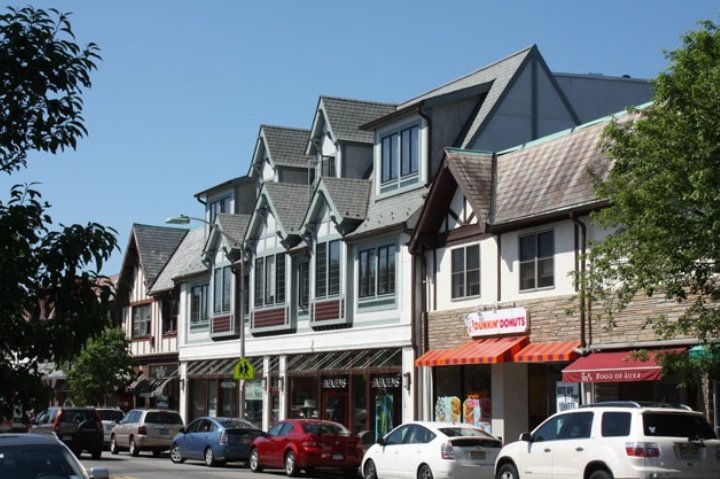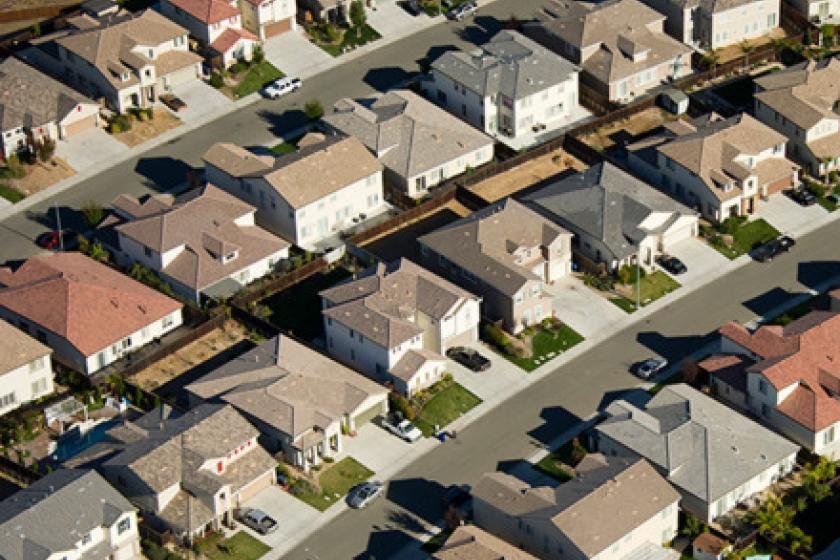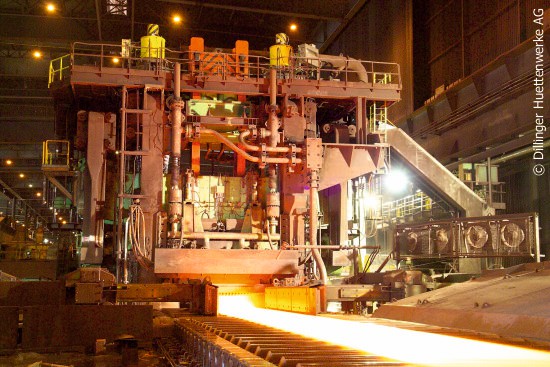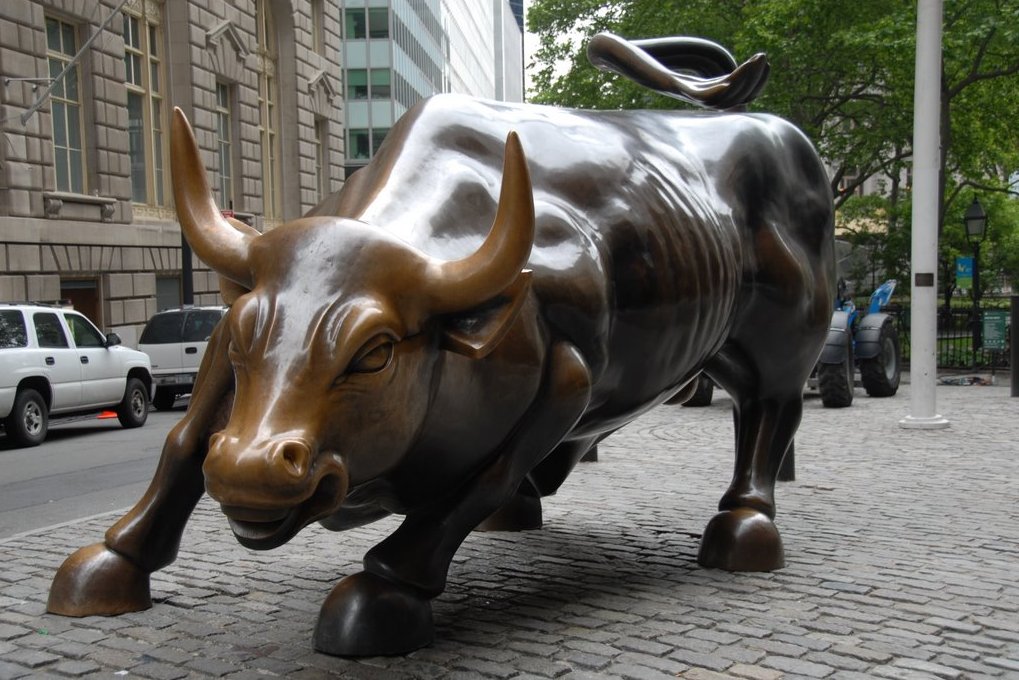SOCIO-ENVIRO-ECONOMIC SYSTEM
COMPLETE SYSTEM
|
|
HUGE ... COMPLEX ... AND AMAZING
|


|
BETTER MANAGEMENT METRICS ARE NEEDED ...
Conventional thinking about performance analysis simply won't work:
- The system is very complex with many competing agendas!
- Top down management of this system for best results is impossible
- Profits, financial wealth and quality of life is up ... for some
- Improvement in quality of life for most is weak
- Degradation of the environment is out of control
Peter Burgess COMMENTARY
The economic performance of the economic system has been very good over the past 40 years enabled by an amazing period of productivity improvement largely but not exclusively driven by digital technology.
During this same period there has also been a surge in 'inequality' ... that is the accumulation of wealth has been very much in favor of the rich and powerful with everyone else sharing a smaller and smaller share of the economic pie. At this point in history (March 2023), inequality of wealth and income is at historic levels, with little action by global leadership to address this situation.
The socio-economic stress at the 'bottom of the pyramid' has increased over the past forty years while the wealth and income at the top has been growing ... and this state of affairs in going to destablize everything in the not too distant future.
There are also enviro-economic problems that are growing rapidly. These have been the subject of massive corporate misinformation campaigns over the past several decades, but extreme weather events are now becoming more and more frequent and it is difficult to deny the scientific reality any longer.
The corporate business segment of the global socio-enviro-economic system has been very effectively managed for profit growth and the accumulation of financial wealth by investors (owners). This is conventional financial management accountancy, a tool that has been in play for centuries and formalized by government legislation during the Victorian era and the early days of rhe industrial revolution. Conventional financial management accountancy remains very powerful and is at the core of every major corporate organization.
Neither the social or the environmental dimensions of economic activity are accounted for with anything like the same rigor and effectiveness as the economic or financial performance of business. Worse, activities that deliver social benefit or environmental benefit are left outside any system of generally accepted acocunting.
Peter Burgess
|

|

|

|
MANAGE FOR PROGRESS NOT ONLY FOR PERFORMANCE
PROGRESS is the increase in VALUE (of the STATE)
from beginning to end of the period
|
PERFORMANCE is very complicated, and depends on the PERSPECTIVE of the analysis.
PROGRESS is less complicated and very much easier to measure ... and manage!
The dynamic change in all of these may be described using some core concepts of accountancy:
- Beginning Balance Sheet (BOP STATE)
- Value add | Contribution
- Value destruction | Cost
- Ending Balance Sheet (EOP STATE)
Peter Burgess COMMENTARY
Very early in my training as a Chartered Accountant, I was introduced to the idea that there were two ways to compute a business profit.
- One was to add up all the transactions during the accounting period ... all the sales and all the costs ... deduct the total costs from the total sales, and the result was the profit.
- A second way was to add up all the assets at the beginning of the period and deduct all the liabilities at the beginning of the period to ascertain the net assets at the beginning of the period. Then do the same calculation at the end of the period. If the value at the end of the period was bigger than the value at the beginning of the period, there was a profit and this was the amount of the profit. There is a loss when the end of period value is smaller than the beginning of period value.
The term 'period' is commonly used in accountancy to reflect the duration for which the accounting is being done. For many purposes ... like taxation ... the period is a year, but for other purposes like for example business management the period is often a month. Sometimes the period is a quarter or three months.
In a complicated system involving social, environmental and economic dimensions, the second computation which measures progress can be very much the most effective.
Peter Burgess
|
UNDERSTANDING IMPACT OF ECONOMIC,
SOCIAL AND ENVIRONMENTAL ACTIVITIES
FRAMING THE METRICS FOR PROGRESS AND PERFORMANCE
|
|
GOOD AND BAD IMPACTS IN THREE DOMAINS
|
ECONOMIC
IMPACT

|
ENVIRONMENTAL
IMPACT

|
SOCIAL
IMPACT

|
ACTIVITIES IN THE ECONOMIC SPHERE
USE:
SOCIAL RESOURCES;
NATURAL RESOURCES;
ECONOMIC RESOURSES
TO DELIVER GOOD IMPACTS FOR:
SOCIETY;
THE ENVIRONMENT; AND
THE ECONOMY
AS WELL AS HAVING ASSOCIATED BAD IMPACTS ON:
SOCIETY;
THE ENVIRONMENT; AND
THE ECONOMY
|
ENVIRONMENTAL ACTIVITIES
USE:
SOCIAL RESOURCES
NATURAL RESOURCES
ECONOMIC RESOURSES
TO DELIVER GOOD IMPACTS FOR:
SOCIETY;
THE ENVIRONMENT; AND
THE ECONOMY
AS WELL AS HAVING ASSOCIATED BAD IMPACTS ON:
SOCIETY;
THE ENVIRONMENT; AND
THE ECONOMY
|
ACTIVITIES IN THE SOCIAL SPHERE
USE:
SOCIAL RESOURCES
NATURAL RESOURCES
ECONOMIC RESOURSES
TO DELIVER GOOD IMPACTS ON:
SOCIETY;
THE ENVIRONMENT; AND
THE ECONOMY.
AS WELL AS HAVING ASSOCIATED BAD IMPACTS ON:
THE SOCIETY;
THE ENVIRONMENT; AND
THE ECONOMY.
|
Peter Burgess COMMENTARY
For a very long time economists and policy makers in government and the business and finance community have used GDP as a measure of economic performance. This is a very simplistic measure that was introduced in the Great Depression of the 1930s as a temporary and urgent economic metric. Post WWII, both Keynes and Kuznets expected GDP to be upgraded but it never happened. I don't know the reason, but I suspect it is because the GDP measure worked for the people in politics who value their own interest more than the nation.
TrueValueMetrics (TVM) has three primary indicators: for society, for the environment and for the economy together with multiple subsidiary indicators within each of these main segments. Even at this simplified level shown above, it is clear that there is quite of lot of complexity, but at the same time the possibility of a lot of meaningful clarity.
Simply put, every activity in one domain is going to do both good and bad in every other domain.
As a university student in engineering and then learning the workings of double entry accountancy in the late 50s, early 60s, it struck me that the methods I had learned for thermodynamic analysis and the analysis of double entry accounting had similar logical framing. Activities that were using resources to produce something of more value ... burning coal to produce steam to produce electricity to do all sorts of good things had a lot in common with the use of financial resources (costs) that produce products for sale (revenues) both of which were recorded and the surplus of revenues over costs gets called profit.
Thus, in accountancy there is a clear requirement to relate all the financial costs with all the financial benefits that arise from the activities of the business ... there is always a 'double entry' to record both the cost and the benefit. When the activities are summarized this produces a 'profit and loss account' for an accounting period but it also produces information about the changes in the 'balance sheet' ... that is a listing and summary of all the changes in assets and liabilities during the period.
Note that the profit or loss that gets reported using the 'profit and loss' account is the same as the change in the net of assets and liabilities in the balance sheet. This is a fundamental strength of conventional financial double entry accountancy which has been used for a very long time ... well over 400 years. Famously, it was described by an Italian ... Luca Francis Pacioli who wrote a book (Summa de Arithmetica, Geometria, Proportioni et Proportionalita) in 1494 that included a section on the workings of 'double entry accounting' used by Venetian merchants of the day.
Financial accounting is at the core of the business economy, and it is the business economy that dominates when it comes to big decisions. The 'big decisions' that relate at the personal or family level do not truly feature in the 'management' of the economy or society ... maybe a bit of 'lip service' but not much at all at the bigger level ... and for all practical purposes the importance of nature and the environment has been ignored by those who make the big financial decision to keep the profit flows growing.
For TVM better metrics are a priority. Having key metrics based on the triad of society, environment and the economy can be a 'game changer' and the starting point should be to rework conventional financial accounting to expand it to embrace all of the three segment of the system (social, environmental and economic) using more or less the same framework that already exists for the money transactions related to business.
Not all the data points and data flows needed exist at the present time. TVM does not want to use 'money' as a proxy measure when a needed metric is missing ... so something that works is needed. A step towards establishing a missing needed metric is to make records of changes over time for items of some importance ... especially at the local level. This will help answer the question about whether there is 'movement' and whether or not this movement is significant and in the right direction.
Another priority for TVM is to challenge the story being promulgated with the incessant use of GDP as a key measure of national performance. Simply put, the United States has had per capital GDP growth since 1980 that has been quite spectacular when looking simply at the total population and the total GDP ... but when this is looked at more closely about 80% of the US population has experienced a decline in their living standards while less than 20% have seen improvement. The top 1% have accumulated an obscene amout of wealth according to the conventional GDP metric. In my view, there is a strong argument that much of what they 'own' can hardly be regarded as wealth since in many ways it exists but has not much value when looked at from many of the possible alternative perspectives.
Many of these ideas are expanded upon below and in other sections of the TVM website. They are foundational for the development of an upgraded system of management metrics that goes a long way beyond what is currently being used by the world's accountants and CFOs.
Peter Burgess
|
|
HUMAN CAPITAL
|



|
PEOPLE are the most important part of the socio-enviro-economic system.
The most important goal is simply that quality of life for everyone on planet earth should be getting better.
In order to live life there is a cost of living. Products ... a variety of goods and services ... are consumed to support quality of life.
People are also contributors in very many different ways. Some are 'unpaid' in a conventional sense, like parenting, which is very valuable for the child. Much is pay for work done within an organization that produces goods and services.
People are also decision makers ... and it is these decisions that are going to determine more than anything else the performance of the socio-enviro-economic system. Since around 1980 the dominant goal of decision making has been to improve the profit performance of companies primarily for the benefit of the owners. Decision making in the household has been constrained by available income. Household consumption growth was facilitated by financial innovation and easing credit, but hardly at all by increased income.
While scientists have understood for several decades that serious climate change will happen, most decision makers in the general socio-enviro-economic system have ignored the matter ... to everyones detriment.
|
|
RELATIONSHIP CAPITAL
|



|
|
People are social. They are better in a family setting and better with friends and a community.
|
|
LOCATIONAL CAPITAL
|



|
PLACE has a major impact on quality of life ... perhaps more than anything else. Places need to be liveable with decent housing and access to all the goods and services needed for a good quality of life.
Too much of the world's people are living in squalid conditions. This is not because the world does not have the capacity to do better, it is because the decision makers in the system do not have the objective to do better.
There are many attractive communities in the world ... but too many places that are dysfunctional in a variety of ways ... places where the economics do't work, where the environment is unhealthy and society broken. The places need programs to help that address ALL the systemic problems. Single issue initiatives are not enough. Programs have to addess all the issues in a comrpehensive way.
|
SPIRITUAL CAPITAL
Bhuddism
.................
Christianity
.................
Islam
|



|
Religion ... spirituality ... has played an important part in human society for thousands of years. Arguably the level of spiritual awareness is a measure of something important in society.
There are many different manifestations of spirituality.
Over the centuries they have had a huge role in how society has developed.
In recent decades religion has played a low profile role in Western democracies but not so much in less developed countries. In far too many cases religion has been used as a basis for hate rather than for love and empathy.
Religion has an important role in quality of life, perhaps appreciated the most in times of stress and intense deprivation and crisis. This is important.
Religion also has a role in helping to define 'right' and 'wrong' in ways that are not simply materialistic.
|
CULTURAL CAPITAL

|
MUCH OF WHAT MAKES LIFE WORTH LIVING
|
|
|
ENVIRONMENT / NATURAL CAPITAL
|
|
SUN
|



|
|
UPON WHICH NATURE DEPENDS, AND PEOPLE, AND MANY ECONOMIC ACTIVITIES
|
|
LAND
|



|
UPON WHICH NATURE DEPENDS, AND PEOPLE, AND MANY ECONOMIC RESOURCES
LAND ... critical for nature, people and the economy
|
|
WATER
|



|
|
WATER, WATER EVERYWHERE ... BUT VERY LITTLE GOOD ENOUGH TO DRINK
|
|
AIR
|



|
|
AIR CONTAINS OXYGEN, ESSENTIAL FOR LIVING
|
|
RESOURCES
|



|
|
MINERALS AND ENERGY ARE ESSENTIAL FOR THE MODERN ECONOMY AND SOCIETY
|
|
BIODIVERSITY
|



|
|
A LOT IS KNOWN ... BUT EVEN MORE REMAINS UNKNOWN
|
|
ECOSYSTEM SERVICES
|


|
|
VERY COMPLEX / VERY IMPORTANT ... AND VITAL THAT IT IS NOT IGNORED
|
|
ECONOMY / ECONOMIC CAPITAL
|
PHYSICAL CAPITAL
THE ENGINEERING THAT ENABLES THE MODERN MATERIAL WORLD
|



|
THEY HAVE LONG LIFE AND BIG IMPACTS
|



|
CRITICAL DRIVER / CONSTRAINT ON PROGRESS
|



|
ECONOMICALLY EFFICIENT ... Impressive improvement in economic productivity, but less so for social and environmental impact
|



|
THE LINKS THAT ENABLE THE SUPPLY CHAIN
|



|
ESSENTIAL FOR THE FUNCTIONING OF THE MODERN WORLD
|
FINANCIAL CAPITAL
MONEY MAKES THE WORLD GO ROUND
|



|
BANKING AND FINANCE
Financial engineering has become a big part of performance optimization since the early 1980s. Without money the economy stops ... and life is miserable. However, finance is only a lubricant, not the engine!
Since the start of the industrial revolution there has been amazing progress in technology and in productivity ... a period of around two centuries. The improvement in productivity has accelerated in recent years rather than slowing down. This should be good news for the people of the planet, but improvement in productivity has not translated very well into an improvement in quality of life for the majority of the world's population.
|
|
MONEY / UNIT OF ACCOUNT FOR ECONOMIC PERFORMANCE
|



|
UNIT OF ACCOUNT FOR ECONOMIC PERFORMANCE
Expressing business performance in terms of money profit is logical and reasonable, but trying to reflect social and environmental performance using money as the unit of account does not work.
For business performance to have broader meaning, it must reflect the impact business has on society and on the environment as well as the economic impact. The trand during the past several decades since the early 1980s to focus on money profit as the sole purpose and goal of business is a very bad idea though it became popular among the Chicago School of economist including the late Milton Friedman. John Maynard Keynes, Joan Robinson and others from the Cambridge School of economists in the 1950s saw value in activities beyond those that were pure business, but those ideas were supressed in the modern era of economic financialization.
|



|
MONEY AS A STORE OF VALUE
This has been one of the roles for money since ancient times, but it is not the only 'store of value' and not very good. There was a time when money served as a store of money because it had intrinsic value ... it was a lot more than mere printed paper. Gold was a very suitable metal for making money because it was super stable. Most modern money has no true 'backing' and in most cases had lost value over time. Modern money usually loses its 'buying power' quite significantly over time and many other assets ... like land, for example ... may be better 'stores of value' than money.
|
INTANGIBLE CAPITALS
MANY OF THE THINGS THAT MAKE LIFE WORTH LIVING
|



|
THE UNDERLYING DRIVER OF PROGRESS
In the modern world there is a rather poor understanding of what it takes to use knowledge in the most constructive way possible. Albert Einstein was able to use intellectual logic to understand some of the most difficult ideas in physics ... and young children teach themselves how to live their lives, with and without help from adults ... and older students get challenged at great centers of learning to push the envelope of knowledge.
The amount of knowledge is huge ... most people don't use much of it ... and too much of knowledge is used for bad purposes, but the potential for good of all the knowledge that currently exists is a great foundation of realistic hope.
|



|
SOME ESSENTIALS FOR AN ENABLING ENVIRONMENT
The United States and Western style democracies generally are not perfect, but they have many good characteristics. As Winston Chruchill is reported to have said something to the effect that: 'Democracy has its problems, but it is better than anything else''
- Representastives of the people make the laws;
- Police serve to help ensure that the rule of law is followed; and
- A judiciary applies the law
|



|
CRITICAL FRAMEWORKS FOR PRODUCTIVITY IMPROVEMENT
There are some things that can be done by an individual or a small group, but most things are done more efficiently at scale, and that requires organization.
In most situations a big organization can be more efficient than a small organization, but when this results in unconstrained 'monopoly' the efficiency may not be of benefit to society as a whole, but solely benefit the organization.
Specialization can be an enabler of productivity, though in some situations it serves to retard progress because of unwillingness to move away from established methods to new methods. Most companies that made steam locomotives failed to move with technology and new companies emerged to make diesel and electric locomotives. Companies like Kodak that made photographic film for decades failed to embrace the new digital image world. But some powerful companies buy technology not so much to use it but to supress its use by others.
|
|

